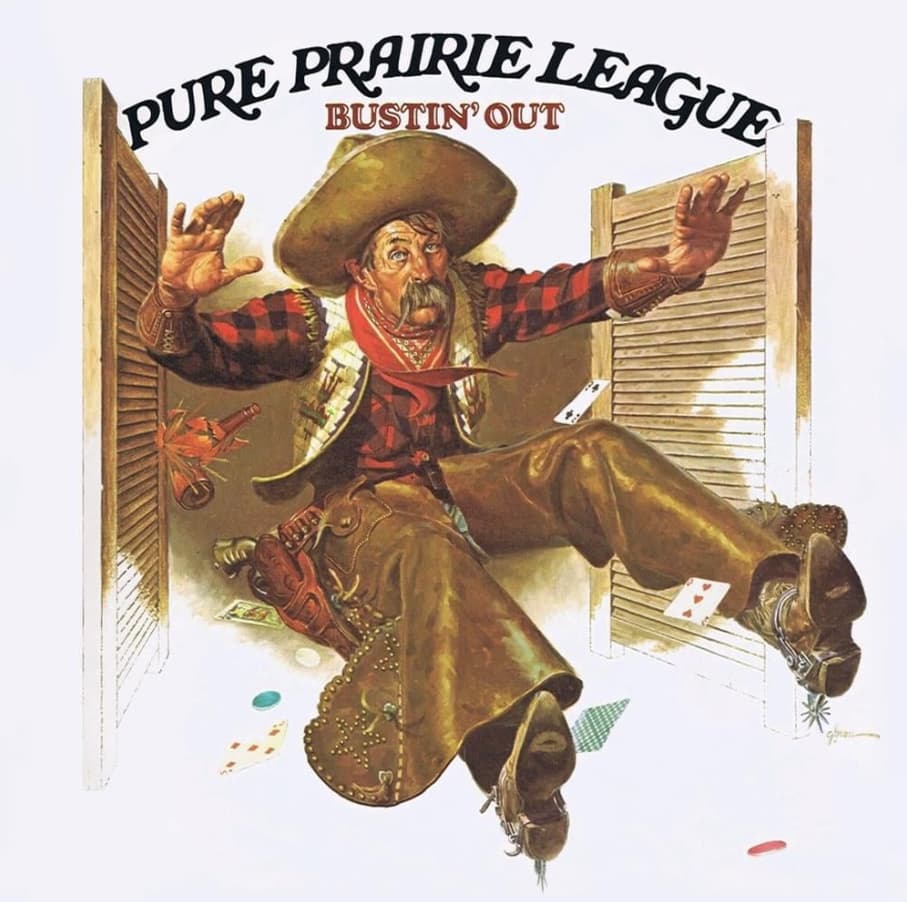
Pure Prairie League – “Amie”: A Country-Rock Classic of Longing and Reconnection
Pure Prairie League’s “Amie” is a beautifully crafted country-rock ballad that captures the bittersweet emotions of love, separation, and the possibility of reconciliation. Released in 1975 as part of the band’s Bustin’ Out album, the song became a sleeper hit, reaching No. 27 on the Billboard Hot 100. With its gentle harmonies, heartfelt lyrics, and signature blend of country and rock elements, “Amie” has become an enduring favorite, known for its memorable chorus and the longing expressed in every line.
The song opens with a gentle, acoustic guitar riff that sets a reflective and relaxed tone. The instrumentation is simple yet rich, creating a sense of warmth and nostalgia that mirrors the theme of the song. The steel guitar adds a classic country flavor, enhancing the song’s rural feel and providing a backdrop that feels both intimate and expansive. This stripped-back arrangement allows the focus to remain on the lyrics and vocals, giving “Amie” a timeless, almost folk-like quality.
Lyrically, “Amie” tells the story of a narrator reflecting on a past relationship with a woman named Amie. The line “I think I could stay with you for a while, maybe longer if I do” captures the uncertainty and hesitation that often accompany romantic reconnection. The narrator seems torn between his desire to reunite and the knowledge that staying might not be possible or wise. The lyrics are straightforward yet deeply resonant, speaking to the universal experience of wondering what might have been, and the yearning to rekindle a love that has lingered in memory.
The chorus, “Amie, what you wanna do? / I think I could stay with you,” is simple but unforgettable, capturing both the narrator’s affection for Amie and the emotional pull of a potential reunion. The repetition of her name adds a personal, intimate quality to the song, making it feel like a genuine conversation. It’s a chorus that invites listeners to sing along, embodying the reflective mood of the song and creating a sense of shared experience.
Craig Fuller’s lead vocals are central to the song’s appeal, delivering each line with a sense of vulnerability and sincerity. His voice is smooth and understated, perfectly suited to the song’s gentle melody. Fuller’s performance is warm and open, allowing the listener to feel the depth of his emotions without any vocal exaggeration. His tone, combined with the harmonized backing vocals, creates a sense of closeness that makes the song feel like a personal confession.
The harmonies provided by the rest of the band are a defining feature of “Amie,” adding depth and texture to the track. The layered vocals create a soft, enveloping sound that gives the song a peaceful, almost meditative feel. These harmonies enhance the song’s emotional impact, adding a sense of community and warmth that feels both comforting and nostalgic.
Musically, “Amie” blends elements of country, folk, and rock, a style that became a hallmark of Pure Prairie League’s sound. The acoustic guitar, steel guitar, and harmonized vocals come together to create a seamless blend of genres, giving the song a cross-genre appeal that has helped it endure over the years. The mid-tempo rhythm keeps the song grounded, allowing the lyrics and vocals to take center stage while maintaining a steady, laid-back groove.
Since its release, “Amie” has become a staple of classic rock and country playlists, celebrated for its relatable themes and memorable melody. The song’s depiction of love, uncertainty, and nostalgia continues to resonate with listeners, making it a timeless track that appeals to fans across generations. It’s a song that feels at home both in intimate settings and large gatherings, uniting listeners in a shared sense of longing and possibility.
“Amie” is often credited with helping define the country-rock genre, and its success paved the way for bands that followed in Pure Prairie League’s footsteps. Its blend of heartfelt storytelling, smooth harmonies, and easygoing melody captures the essence of the 1970s country-rock movement, showcasing the beauty of simple, genuine expression.
In the end, “Amie” is more than just a love song—it’s a reflection on the choices we make, the people we hold onto, and the memories that stay with us. Pure Prairie League’s gentle, heartfelt delivery makes it a song that feels timeless, a track that invites listeners to think about their own experiences with love and the possibility of second chances. For fans of country-rock and introspective ballads, “Amie” remains a classic that speaks to the heart, offering a glimpse into the emotions that define life’s most meaningful relationships.